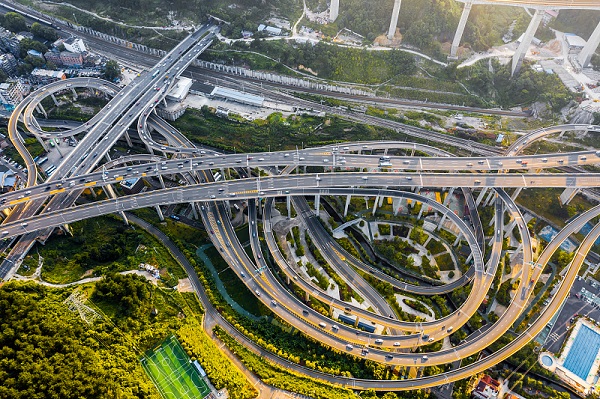Guizhou receives national support in transportation development
eguizhou.gov.cn|Updated: October 26, 2022

Guizhou will boost the high-quality development of transportation. [Photo/Guiyang news network]
The Ministry of Transport recently revealed 25 measures to support Guizhou's high-quality development in transportation.
According to the plan, the ministry will support Guizhou in finding new ways to invest in transportation and constructing rural roads, and share its successful experience in other areas.
With trans-regional and one-stop services, Guizhou's transportation-related government services will be more convenient for companies and individuals.
Guizhou will enhance the reform of its rural road management and maintenance system, improve the long-term mechanism for the operation of the "road chief" system in rural areas, promote the automatic detection of rural road conditions, and make the most of the economic value of rural roads.
The plan will support the cities of Guiyang, Zunyi and Bijie in Guizhou to develop expressways, railways and airports. It encourages the sharing of passenger flow data for railways and expressways, so as to improve the transportation service ability.
Guizhou will focus on the Guangdong-Hong Kong-Macao Greater Bay area, Chengdu-Chongqing region, and Guangzhou-Kunming corridor, so as to speed up the expansion and reconstruction of national expressways according to transportation demands.
The plan also supports Guizhou in expanding the transportation ability of waterways and accelerating the construction of main railways.
It supports Guiyang and Zunyi in becoming national comprehensive transportation hub cities, and the ports of Guangzhou, Shenzhen and Beibu Gulf in establishing dry ports in Guizhou.
Guizhou will explore and apply edge computing, build an information modeling and geographic information system in bridge and tunnel construction, and start intelligent transformation in constructed transportation infrastructure facilities.
It will also encourage the bulk of cargo transportation to turn from expressways to railways and waterways, and apply more clean energy vehicles in public transportation, such as buses, taxis and ships.




